

Share
12th November 2018
05:08pm GMT

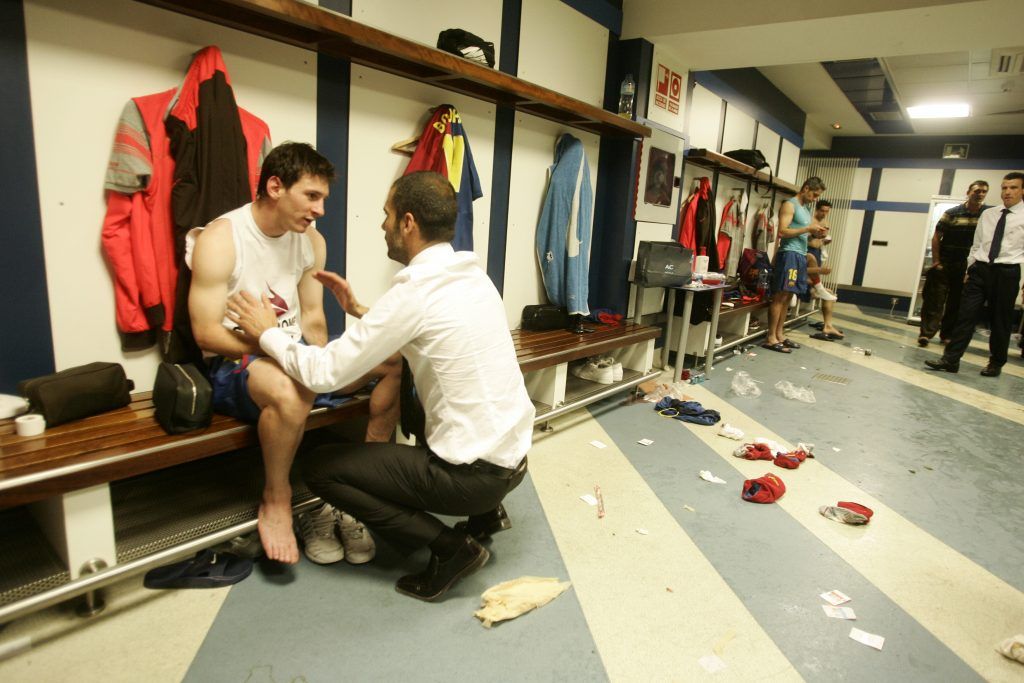 Cruyff's arrival, first as a player in 1973 and when he returned as the coach in 1988, changed everything. At Barcelona, Cruyff instilled the Ajax principles of passing out from the back and pressing from the front. The second time his ideas stuck.
One of his first acts as a first-team coach was to remove a sign on the door of the coaches' room which stated that players must be at least six-foot tall.
Cruyff profoundly changed the culture of the club, Guardiola restored his principles and took the ideas to another level. Messi then elevated the team to unparalleled heights.
Cruyff's arrival, first as a player in 1973 and when he returned as the coach in 1988, changed everything. At Barcelona, Cruyff instilled the Ajax principles of passing out from the back and pressing from the front. The second time his ideas stuck.
One of his first acts as a first-team coach was to remove a sign on the door of the coaches' room which stated that players must be at least six-foot tall.
Cruyff profoundly changed the culture of the club, Guardiola restored his principles and took the ideas to another level. Messi then elevated the team to unparalleled heights.
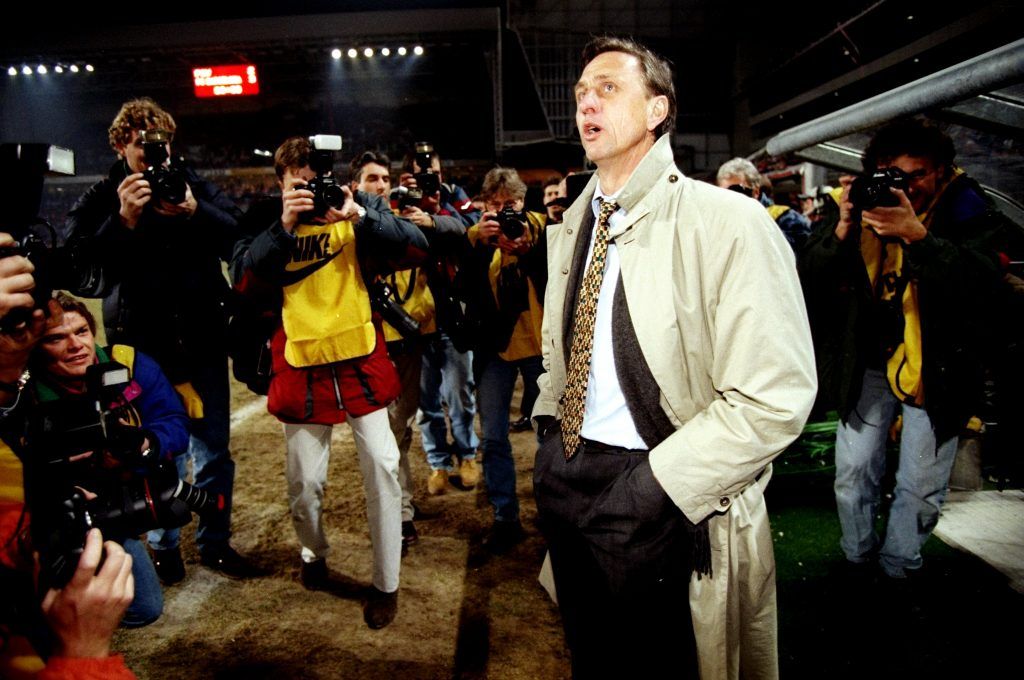 In 2008, Barcelona interviewed Mourinho for the position and the board were divided on whether to appoint the former Chelsea coach. Cruyff urged them to promote Guardiola from the B team and thus began the most transformative and successful period in the recent history of European club football.
The players don't all speak about Pep with great personal warmth - Abidal and Eto'o, in particular, admit they found him difficult and extremely demanding at times. But their respect for him is immeasurable. They talk about Guardiola as though he was capable of predicting the future.
Pep's preparation for games was second to none. He told his team what would happen in matches and more often than not he was right. The players use the word "genius" to describe him and it doesn't feel like hyperbole.
"If Pep had told me to jump off the third tier of the Nou Camp," Dani Alves says. "Then I'd jump because I'd think there must be a good reason for it."
In 2008, Barcelona interviewed Mourinho for the position and the board were divided on whether to appoint the former Chelsea coach. Cruyff urged them to promote Guardiola from the B team and thus began the most transformative and successful period in the recent history of European club football.
The players don't all speak about Pep with great personal warmth - Abidal and Eto'o, in particular, admit they found him difficult and extremely demanding at times. But their respect for him is immeasurable. They talk about Guardiola as though he was capable of predicting the future.
Pep's preparation for games was second to none. He told his team what would happen in matches and more often than not he was right. The players use the word "genius" to describe him and it doesn't feel like hyperbole.
"If Pep had told me to jump off the third tier of the Nou Camp," Dani Alves says. "Then I'd jump because I'd think there must be a good reason for it."
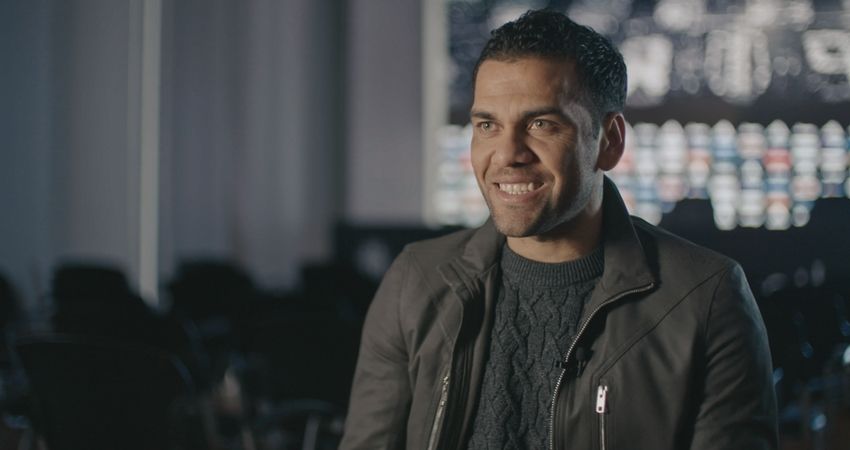 The section of the film covering Messi is dizzying.
It is almost impossible to say anything new about the Argentine forward. He is a genius. He has obliterated every record imaginable. He will be remembered by many as the greatest to ever play the sport.
Yet, listening to his peers and former teammates speak about him leaves you the sense that Messi is probably underrated by the general public. That’s how highly they speak of him.
The section of the film covering Messi is dizzying.
It is almost impossible to say anything new about the Argentine forward. He is a genius. He has obliterated every record imaginable. He will be remembered by many as the greatest to ever play the sport.
Yet, listening to his peers and former teammates speak about him leaves you the sense that Messi is probably underrated by the general public. That’s how highly they speak of him.
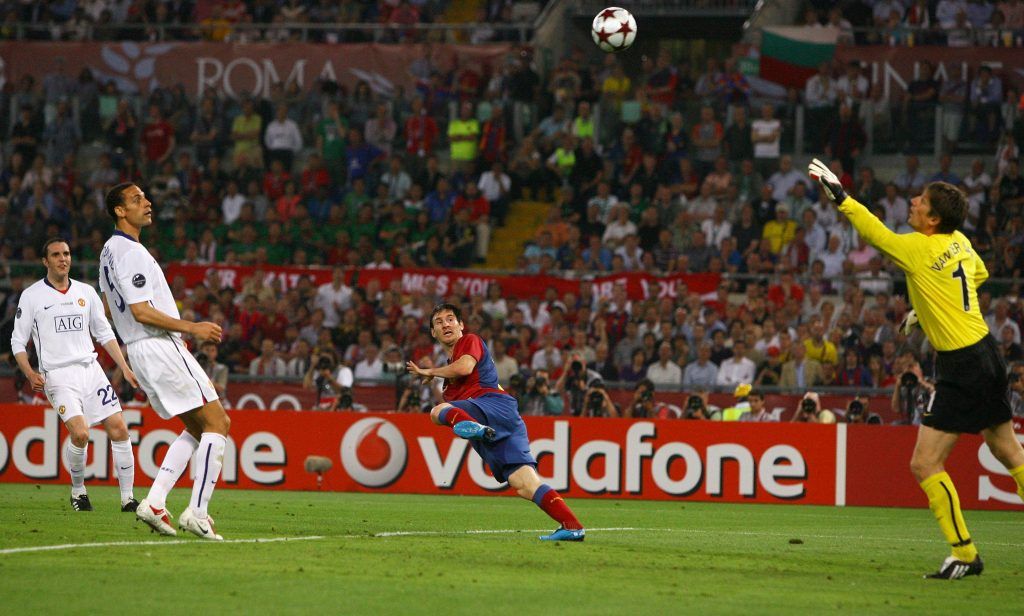 As spectators watching on television, Messi's brilliance is obvious. It is a privilege to watch him in the flesh because you get a closer look at what makes him so great – his movement, his passing and his appreciation of everything going on around him
But to work with him every day, and share a pitch with him, is clearly something entirely different, judging by the contributors to the documentary. World class footballers such as Xavi, Henry and Eto’o speak about Messi as though he isn’t human, such his is talent.
Eto’o claims that he told Patrick Vieira before a friendly game between Barcelona and Juventus that the then 17-year-old Messi was about to change the sport.
As spectators watching on television, Messi's brilliance is obvious. It is a privilege to watch him in the flesh because you get a closer look at what makes him so great – his movement, his passing and his appreciation of everything going on around him
But to work with him every day, and share a pitch with him, is clearly something entirely different, judging by the contributors to the documentary. World class footballers such as Xavi, Henry and Eto’o speak about Messi as though he isn’t human, such his is talent.
Eto’o claims that he told Patrick Vieira before a friendly game between Barcelona and Juventus that the then 17-year-old Messi was about to change the sport.
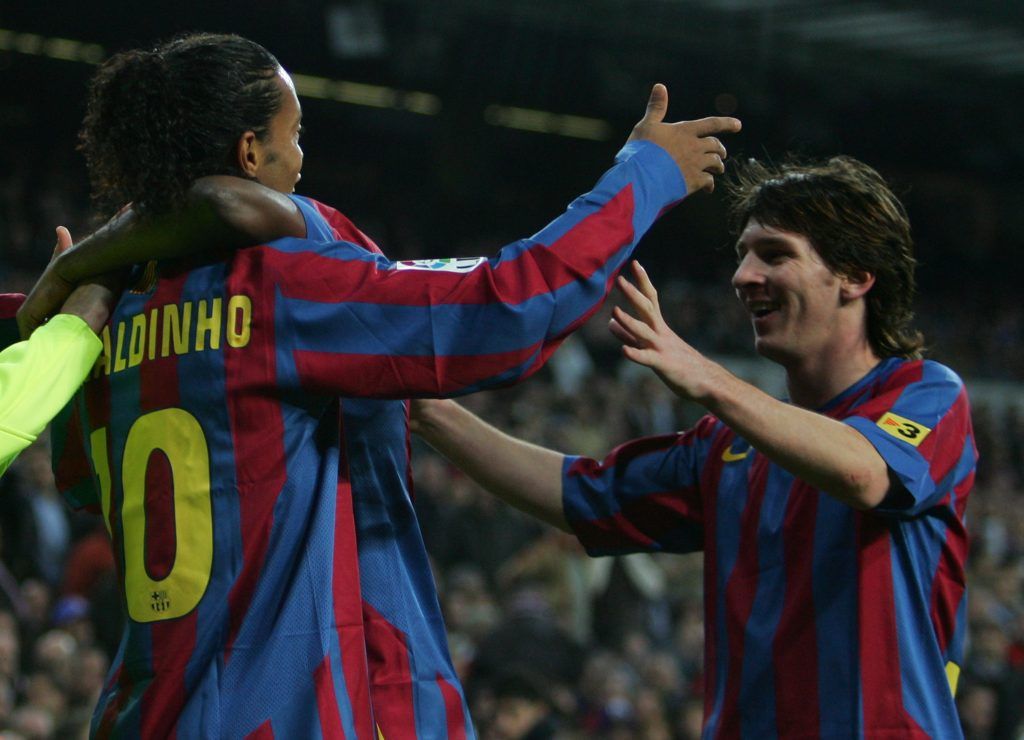 Henry references Messi’s competitive spirit. He says that if a decision didn't go Messi's way in training, he would collect the ball from the goalkeeper, dribble around everyone and score. No-one could stop him. He would do this repeatedly until he calmed down and showed his opponents some mercy.
There is footage of Messi as a five-year-old on a dusty field in Rosario when he was a tiny dot of a player running rings around the other kids. The film then skips to him doing the same to world class opponents.
The contributors almost struggle to comprehend his talent.
Henry references Messi’s competitive spirit. He says that if a decision didn't go Messi's way in training, he would collect the ball from the goalkeeper, dribble around everyone and score. No-one could stop him. He would do this repeatedly until he calmed down and showed his opponents some mercy.
There is footage of Messi as a five-year-old on a dusty field in Rosario when he was a tiny dot of a player running rings around the other kids. The film then skips to him doing the same to world class opponents.
The contributors almost struggle to comprehend his talent.
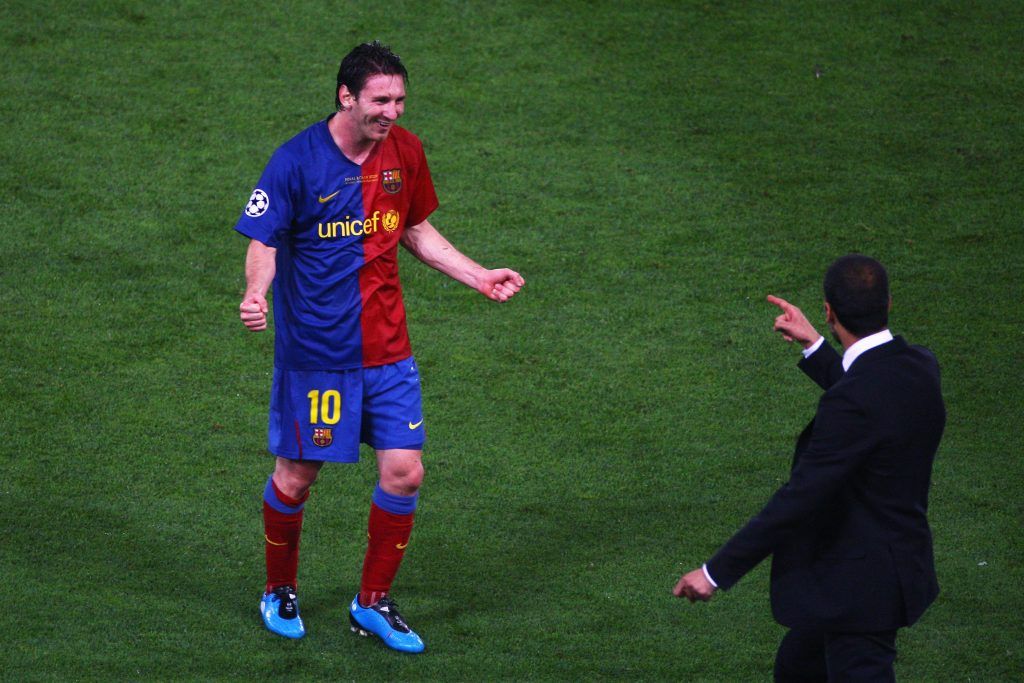 In the film, Xavi is cited as the most intelligent footballer of his generation by his former teammates. But even he finds it difficult to articulate just how incredible Messi is. According to Xavi, Messi is just better than everyone else in every single aspect.
"He’s better than you with his right foot, left foot and his head," he says. "He's better at defending and attacking. He's faster. Better at dribbling, better at passing."
All of this plays out over clips of Messi’s best moments and greatest goals. Even in an age of saturated football coverage, when we're all well acquainted with Messi’s genius, it’s quite something to watch this unfold.
In the film, Xavi is cited as the most intelligent footballer of his generation by his former teammates. But even he finds it difficult to articulate just how incredible Messi is. According to Xavi, Messi is just better than everyone else in every single aspect.
"He’s better than you with his right foot, left foot and his head," he says. "He's better at defending and attacking. He's faster. Better at dribbling, better at passing."
All of this plays out over clips of Messi’s best moments and greatest goals. Even in an age of saturated football coverage, when we're all well acquainted with Messi’s genius, it’s quite something to watch this unfold.
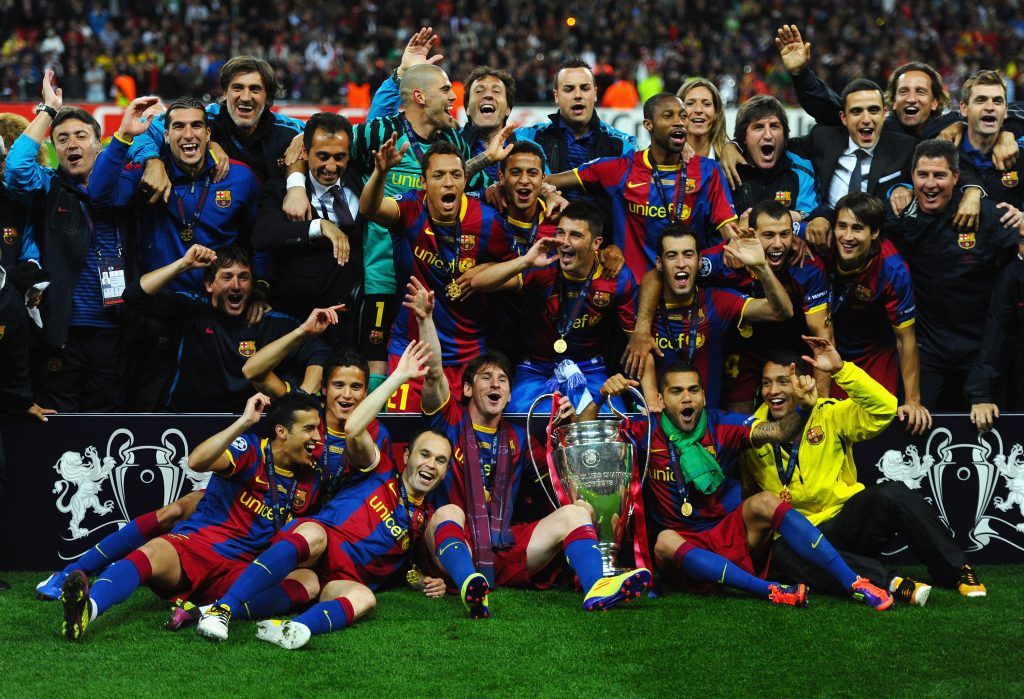 In the documentary, Fabio Capello says that there have been three special teams in club football history - Cruyff's Ajax in the early 1970s, Arrigo Sacchi's AC Milan in the late 1980s and early 1990s and Pep's Barca between 2008 and 2012.
The third era is the only one that has occurred during the digital age when almost all of their matches were televised. As such, it may have been easy for some to become complacent about the brilliance of Pep's Barcelona. The extraordinary almost became ordinary because we were exposed to it on a weekly basis for four years.
Take the Ball, Pass the Ball does a great job at reminding viewers of just how special that team was, how they changed the sport and how lucky fans were to witness football played to a level that was never reached before and may never be reached again.
Take The Ball, Pass The Ball is out now on OurScreen cinemas, and on DVD & Digital Download.
You can watch it on YouTube by clicking here. And it's available for purchase from Amazon by clicking here.
In the documentary, Fabio Capello says that there have been three special teams in club football history - Cruyff's Ajax in the early 1970s, Arrigo Sacchi's AC Milan in the late 1980s and early 1990s and Pep's Barca between 2008 and 2012.
The third era is the only one that has occurred during the digital age when almost all of their matches were televised. As such, it may have been easy for some to become complacent about the brilliance of Pep's Barcelona. The extraordinary almost became ordinary because we were exposed to it on a weekly basis for four years.
Take the Ball, Pass the Ball does a great job at reminding viewers of just how special that team was, how they changed the sport and how lucky fans were to witness football played to a level that was never reached before and may never be reached again.
Take The Ball, Pass The Ball is out now on OurScreen cinemas, and on DVD & Digital Download.
You can watch it on YouTube by clicking here. And it's available for purchase from Amazon by clicking here.
Explore more on these topics: